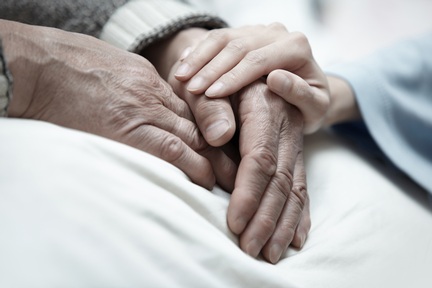Government to scrap 'bureaucratic nightmare' of Deprivation of Liberty Safeguard coroner inquests
Coroners will no longer be required to carry out inquests for anyone who dies while under Deprivation of Liberty Safeguards (DoLS), under an amendment to the Policing and Crime Bill.

The Government has ruled that a person who dies while subject to a DoLS order will no longer be considered to have died in ‘state detention’ and, as such, will not be subject to an automatic coroner inquest if they die of natural causes.
Crossbench peer Baroness Finlay of Llandaff, who strongly campaigned for the amendment, said she was “delighted” that the Government has accepted the change, which should come into force early next year.
She added: “It will save a great deal of distress to the bereaved. When someone subject to DoLS dies of natural causes and the death was expected, an inquest will no longer be required.”
‘Cruel to no benefit’
Under the amendment, the coroner will still be informed should there be unusual or suspicious circumstances surrounding a person’s death but campaigners hope that the change will make the grieving process easier for families, care home staff and fellow residents.
Speaking at the Care England Conference on 16 November, the Baroness explained: “When this is an anticipated death it’s cruel to no benefit.
“Last year there were 6,500 such inquests and that uses up a huge amount of time and resources to no avail because there was nothing to find.”
The change comes after a series of warnings that the automatic requirement for inquests had caused bereaved families distress, while putting unnecessary pressure on services.
Making expected deaths ‘a crime scene’
The minister, Baroness Chisholm of Owlpen, who represents the Cabinet Office in the House of Lords, said: “The Government are pleased to be able to offer our support for this amendment, which will minimise the stress on bereaved families at a very difficult time for them.
“The amendment will fully address the concerns that no family, having watched and comforted their loved one through his or her final days, should then be unnecessarily subject to the anxiety and confusion of having their death investigated by a coroner.”
Professor Martin Green, chief executive of Care England, added: “Baroness Finlay’s amendment to the Policing and Crime Bill is extremely welcome.
“Care homes need to be a place of safety, but our members have reported uniformed police officers attending care homes under their legal duties to investigate a death of a resident making it a crime scene even when the death was expected.”
Considerable increase in coroner referrals since ‘Cheshire West’ ruling
The number of inquests increased significantly following the Supreme Court’s ‘Cheshire West’ ruling in 2014, according to Community Care.
The ruling effectively lowered the threshold of what constitutes deprivation of liberty and this in turn led to a ten-fold rise in DoLS authorisations, to little avail.
Labour MP Ann Coffey, who has long campaigned for reform of the DoLS system, said: “I am absolutely delighted with this change of heart on state detention and inquests.
“When loved ones die in care, relatives should not have their grief exacerbated by this sledgehammer approach.
“The system of DoLS itself remains an expensive bureaucratic nightmare that is diverting resources from front line care at a time when there are huge demands on the social care budget.”
Living will a ‘complete misnomer’
Addressing Care England Conference delegates, Baroness Finlay continued in her speech about DoLS to discuss issues surrounding the advance decision to refuse treatment, which she claims is “misunderstood.”
She said: “People think that they can say things like ‘In the event of me having a massive stroke I don’t want anything done, I don’t want any life prolonging interventions’.”
The Baroness explained the ambiguity around such a statement as to “how big is massive?”
She added: “The clinical teams have no idea what it means happened. So I do worry that there is a view out there that an advance decision to refuse retreatment is somehow a directive, that you can tell somebody to do something to you, which you can’t.
“The so-called ‘living will’ is a complete misnomer; it’s poorly understood by the population.”
The Baroness, who is the chair of the National Mental Capacity Forum, explained that “consent to treatment is all” and that, regardless of a person’s wish to die, there remains a duty of care.
“If somebody does not consent, you cannot do things to them. If they withhold consent, and that is informed consent and they have the capacity to make that decision, it must be respected but they must still get all other care.”
Latest News Analysis
 04-Sep-19
Extra £1.5 billion announced for social care in Chancellor's Spending Review
04-Sep-19
Extra £1.5 billion announced for social care in Chancellor's Spending Review
 02-Jul-19
Department of Health forced to rethink care homes' nursing rates after legal challenge
02-Jul-19
Department of Health forced to rethink care homes' nursing rates after legal challenge
 18-Jun-19
Overnight care workers forced to sleep in offices and told 'bring your own bedding'
18-Jun-19
Overnight care workers forced to sleep in offices and told 'bring your own bedding'
 14-Jun-19
Back in the closet: Third of care home staff have had no LGBT+ awareness training
14-Jun-19
Back in the closet: Third of care home staff have had no LGBT+ awareness training
 11-Jun-19
PM candidates on social care: Rory Stewart calls fixing care an 'unfinished revolution'
11-Jun-19
PM candidates on social care: Rory Stewart calls fixing care an 'unfinished revolution'